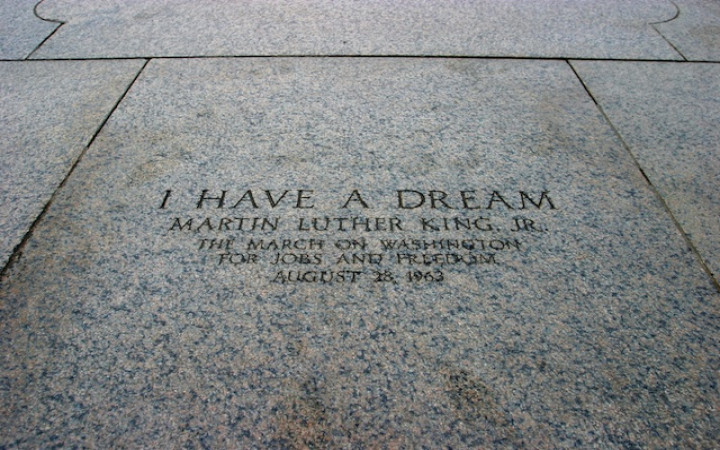Today’s Wonder of the Day was inspired by Fahmida. Fahmida Wonders, “Who was Martin Luther King, Jr.?” Thanks for WONDERing with us, Fahmida!
Have you ever felt inspired? Many people say inspiration provides the passion and drive to take action. People can be inspired in many different ways. It might be connected to their talents, their careers, or causes they care about. Sometimes, individuals have the powerful ability to help others feel inspired. Today’s Wonder of the Day is about one such person: Dr. Martin Luther King, Jr.
Have you ever heard of Dr. King? You may know there’s a holiday named after him. But Dr. King’s legacy is about a lot more than a day off from school or work. His actions changed the world in many important ways.
Dr. King was born in Atlanta, Georgia, on January 15, 1929. As a child, Dr. Martin Luther King, Jr., learned about the evils of segregation. In segregated states, people of different colors were kept separate. People of color could not use the same drinking fountains as White people. At movies, they were forced to use a different door and to sit in the balcony. They had to sit in the back of public buses, too. And segregation went far beyond public facilities. Laws treated people differently based on color.
Until 1957, even public schools were segregated. Dr. King went to segregated public elementary and high schools. He graduated from the all-Black Morehouse College in 1948. After graduation, he wanted to become a preacher. Both his father and grandfather were preachers. Dr. King had decided that was the life for him, too. This took him to Crozer Theological Seminary in Pennsylvania. Later, he went to Boston University, where he earned his doctorate in 1955.
While working to earn his doctorate degree, King met a young musician named Coretta Scott. They married in 1953. The next year, Dr. King became the pastor of the Dexter Avenue Baptist Church of Montgomery, Alabama. The Kings moved to the South, where racism was rampant. Alabama was one of the most segregated states in the United States.
In 1955, Rosa Parks refused to give up her seat on a bus for a White passenger. She was arrested. Dr. King, outraged by Parks’s arrest, helped organize a boycott of the public bus system in Montgomery. The next year, the U.S. Supreme Court banned segregation on public buses.
For over 10 years, Dr. King worked against segregation, racism, and inequality. He gave over 2,500 addresses, including his famous “I Have a Dream” speech. He led marches, like the 1965 Selma to Montgomery March. Police arrested King 29 times, but that didn’t stop him. In fact, King wrote some of his most powerful words—in “Letter from a Birmingham Jail”—after one of these arrests.
Dr. King inspired followers and supporters around the country and the world. His leadership was central to the success of the civil rights movement. In 1964, Dr. King also won the Nobel Peace Prize.
But as often happens when someone tries to bring about change, many people disliked Dr. King. Some were part of dangerous racist groups who wanted to keep segregation. On April 4, 1968, an assassin shot and killed Dr. Martin Luther King, Jr., as he stood on the balcony outside his motel room in Memphis, Tennessee.
Dr. King’s life was cut short, but the impacts of his work continues to ripple today. He inspired others to continue fighting for equality. Are you inspired by Dr. Martin Luther King, Jr.,’s legacy? Where else do you find inspiration?
Standards: C3.D2.Civ.12, C3.D2.Civ.14, C3.D2.His.2, CCRA.L.3, CCRA.L.6, CCRA.R.1, CCRA.R.2, CCRA.R.4, CCRA.R.10, CCRA.SL.1, CCRA.SL.2, CCRA.W.2, CCRA.L.1, CCRA.L.2




